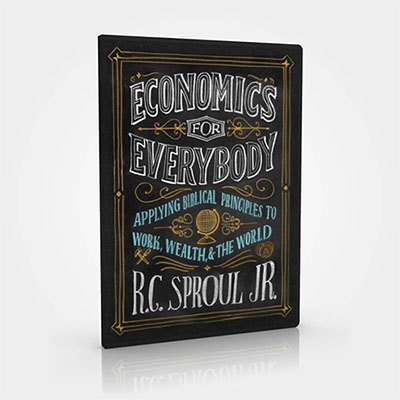
Why are the 10 Commandments Important for Economics?
This is an excerpt from our Economics for Everybody homeschool economics curriculum.
Most people don’t think about economics when they think about the Ten Commandments, but they provide the cultural and legal framework necessary for a people to create a community in which they can be stewards under God. Although the Ten Commandments have a personal aspect to them, they also have a corporate, societal aspect that has great bearing on our economic lives.
The Ten Commandments (Exodus 20) are divided into two tables, one dealing with our relationship to God and the other with our relationship to man. Both sets of relationships are essential to economics.
1. You shall have no other gods before me. – The first commandment tells us that all aspects of our lives must be lived in submission to God as faithful stewards.
2. You shall not make for yourself a carved image, or any likeness of anything that is in heaven above, or that is in the earth beneath, or that is in the water under the earth. You shall not bow down to them or serve them… – The second commandment tells us that we must not make idols of anybody in our community nor of anything that we can create, whether it be products, tools, or services.
3. You shall not take the name of the LORD your God in vain… – The third commandment tells us not to exploit the name of God as if it were some magic talisman to bring us power, wealth and economic success.
4. Remember the Sabbath day, to keep it holy. Six days you shall labor, and do all your work, but the seventh day is a Sabbath to the LORD your God. – The fourth commandment not only commands us to rest, but also commands us to work. We see that the Biblical ratio of work to rest means that 6 days out of a week should be spent working as stewards in the callings God has given us, both inside and outside the home.
5. Honor your father and your mother, that your days may be long in the land that the LORD your God is giving you. – The fifth commandment establishes a framework of authority and submission that starts with the family. Recognizing the authority structures that pervade society, then honoring them, is a pathway to blessing and prosperity.
6. You shall not murder. – The sixth commandment establishes the protection of life as the foundation of any healthy society. History shows that societies that do not protect life quickly succumb to economic catastrophe: it is impossible to work and trade for long in an environment of death.
7. You shall not commit adultery. – The seventh commandment shows us the importance of protecting marriage and families through the laws of a society. Marriages of one man and one woman producing healthy families are the building blocks of any civilization: families are the self-perpetuating method God uses to grow up godly boys and girls to work as faithful stewards with their own families. A society that disregards the importance of marriage and family erodes the walls that support the entire economy.
8. You shall not steal. – The eighth commandment establishes the economic principle of private property; that is, individuals have the right to own things and to choose to do what they want with them. Stealing is taking someone’s private property without his permission. A healthy economic system prohibits stealing at all levels.
9. You shall not bear false witness against your neighbor. – The ninth commandment sets up the groundwork for statements of fact, agreements, and contracts. Telling the truth is basic for economic life: one must be able to depend on the integrity of other people to engage in effective long-term trade and business relationships.
10. You shall not covet your neighbor’s house; you shall not covet your neighbor’s wife, or his male servant, or his female servant, or his ox, or his donkey, or anything that is your neighbor’s. – The tenth commandment is perhaps surprising in its economic context, but it makes perfect sense in light of man’s insatiable greed. Covetousness is often the root of our exploitation of others, when we’re unhappy with the way God has blessed us in comparison with others. An economy made up of people who strive not to covet would be a prosperous economy indeed.
As Christians, we often overlook the foundational role the 10 commandments play in every aspect of society. God intended them to be a basic guide not only for our spiritual, but also for our material well-being.






